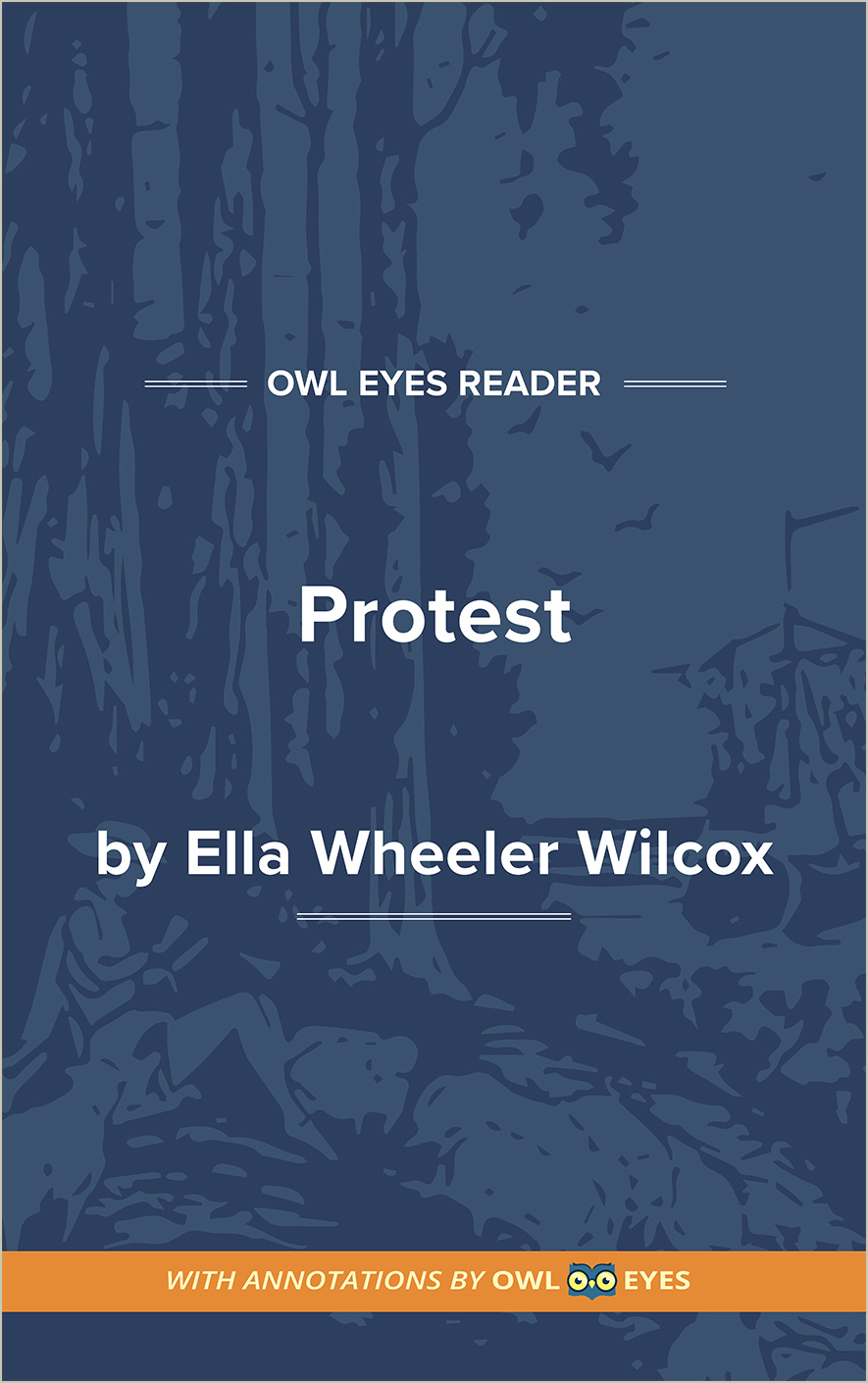Analysis Pages
Vocabulary in Protest
Vocabulary Examples in Protest:
Text of the Poem
🔒"man..." See in text (Text of the Poem)
"Until the mother bears no burden, save The precious one beneath her heart..." See in text (Text of the Poem)
"purchase ease for idle millionaires..." See in text (Text of the Poem)
"God’s soil..." See in text (Text of the Poem)
"men..." See in text (Text of the Poem)
"manacled..." See in text (Text of the Poem)
"Call no chain strong, which holds one rusted link. ..." See in text (Text of the Poem)
"The lawlessness of wealth-protecting laws..." See in text (Text of the Poem)
"May criticise..." See in text (Text of the Poem)
"Press and voice may cry..." See in text (Text of the Poem)
"gag or throttle..." See in text (Text of the Poem)
"vested..." See in text (Text of the Poem)
"Speech..." See in text (Text of the Poem)
"must speak and speak again..." See in text (Text of the Poem)
"our..." See in text (Text of the Poem)
"guillotines..." See in text (Text of the Poem)
"yet would serve the law..." See in text (Text of the Poem)
"lust..." See in text (Text of the Poem)
"ignorance..." See in text (Text of the Poem)
"injustice..." See in text (Text of the Poem)
"The human race Has climbed on protest...." See in text (Text of the Poem)
"sin..." See in text (Text of the Poem)

